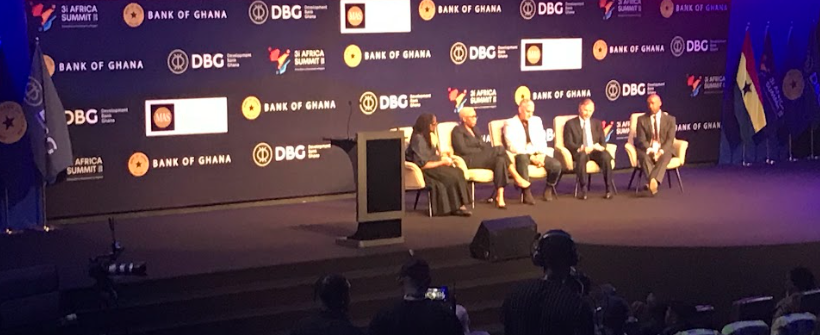At the recent 3i Africa Summit, held in Accra, Ghana, a panel of professionals gathered to discuss the critical theme of “Digital Public Infrastructure: The Highway for Growth and Prosperity.” The discussion cenered on the significant potential of digital infrastructure to drive growth and prosperity across the African continent. However, the panelists unanimously highlighted a pressing concern: the lack of inclusivity in Africa’s digital technology space.
PANELISTS:
- Richard Okyere-Fosu, Director General, National Information Technology Agency (NITA)
- Sabine Mensah, Deputy Chief Executive Officer, AfricaNenda
- Thelma Quaye, Chief Digital Infrastucture, Skills and Empowerment Officer, Smart Africa
- Gabi Adotevi, Regional Head, West Africa, Modular Open Source Identity Platform
- Juliet Wangui Maina, Senior Policy Researcher, DFS Lab
- Emmanuel Khisa, Africa Director, Center for Digital Public Infrastructure (CDPI)
Infrastructure and Technology: Present but Underutilized
The panelists acknowledged that Africa possesses the necessary infrastructure and technology to support a robust digital public space. Investments in internet connectivity, mobile networks, and data centers have created a foundation upon which digital ecosystems can be built. Countries like Kenya, Nigeria, Ghana and South Africa have made significant strides in enhancing their digital infrastructure, leading to a surge in tech startups and innovations.
Despite these advancements, the panel agreed that Africa’s digital public infrastructure remains underutilized. The primary reasons cited for this underutilization are the absence of comprehensive policies and strategic frameworks that can harness the full potential of existing technologies.
Policy and Strategy: The Missing Links
One of the key points raised was the critical need for well-defined policies and strategic initiatives to achieve a self-sufficient digital public space. Without coherent policies, even the best infrastructure cannot drive the desired economic and social transformation. The panelists emphasized the importance of governmental and institutional support in creating an enabling environment for digital growth.
Gabi Adotevi, Regional Head, West Africa, Modular Open Source Identify Platform, stated, “For Africa to truly prosper, digital inclusion must be at the forefront of our strategy. We need to ensure that every African, regardless of their location or socio-economic status, has access to digital tools and resources.”
The panel stressed that inclusivity in the digital space should not only focus on access but also on digital literacy. Equipping people with the skills to utilize digital technologies effectively is crucial for maximizing the benefits of digital infrastructure.
According to Sabine Mensah, Deputy Chief Executive of Africa Nenda, it is crucial to onboard vulnerable entities as the most basic level of inclusivity for us Africans is to make systems accessible widely to all.
Juliet Wangui Maina, Senior Policy Researcher at DFS Lab also hinted that Africans don’t communicate with one another as far as strategies and integrated technology is concerned.
Prospects: A Roadmap for Growth
Despite these challenges, the panelists were optimistic about the future prospects of digital public infrastructure in Africa. They outlined several key areas that could drive growth and prosperity:
By developing comprehensive digital policies that promote innovation, protect consumer rights, and ensure data security we are driving towards an infinite possibility of achieving large scale technological independence. Moreover, collaboration between governments, private sector, and international organizations can help in formulating effective policies.
They also proffered the need to leverage public-private partnerships that can accelerate the development and deployment of digital infrastructure. These collaborations can bring in the necessary investment and expertise to expand digital services across the continent.
Investing in digital education and training programs to build a digitally literate workforce is critical. This includes integrating digital skills into school curriculums and providing vocational training.
The continent ought to roll out targeted initiatives to bridge the digital divide. This includes expanding internet access to rural areas, subsidizing digital devices for low-income households, and creating community centers for digital learning.
Establishing innovation hubs and tech parks can nurture startups and foster a culture of entrepreneurship. These hubs can provide resources, mentorship, and networking opportunities for budding innovators.
While the continent has made notable progress in building the necessary infrastructure and technology, the absence of strategic policies and inclusive frameworks hampers the realization of its full potential.
By addressing these gaps through coherent policies, strategic partnerships, and inclusive initiatives, Africa can harness its digital public infrastructure to drive sustainable growth and prosperity. The discussions at the summit underscore the need for collective action and a renewed focus on inclusivity to ensure that the benefits of digital technology reach every corner of the continent.

